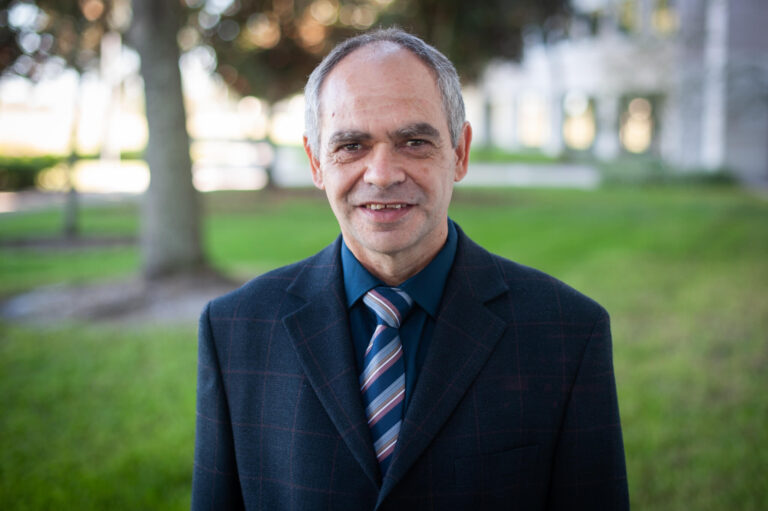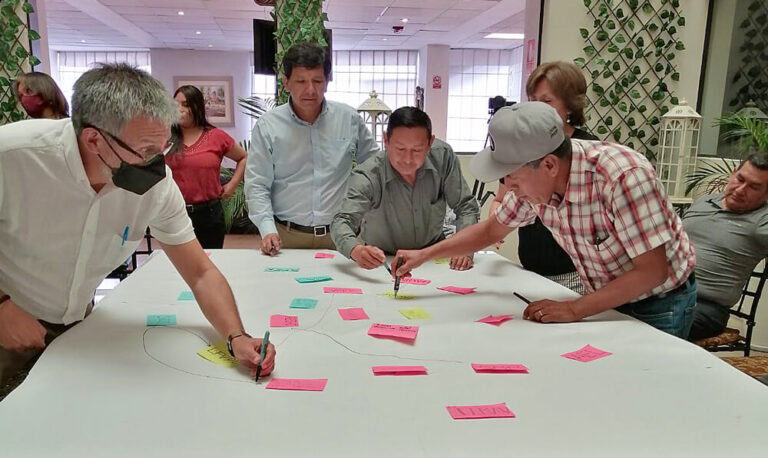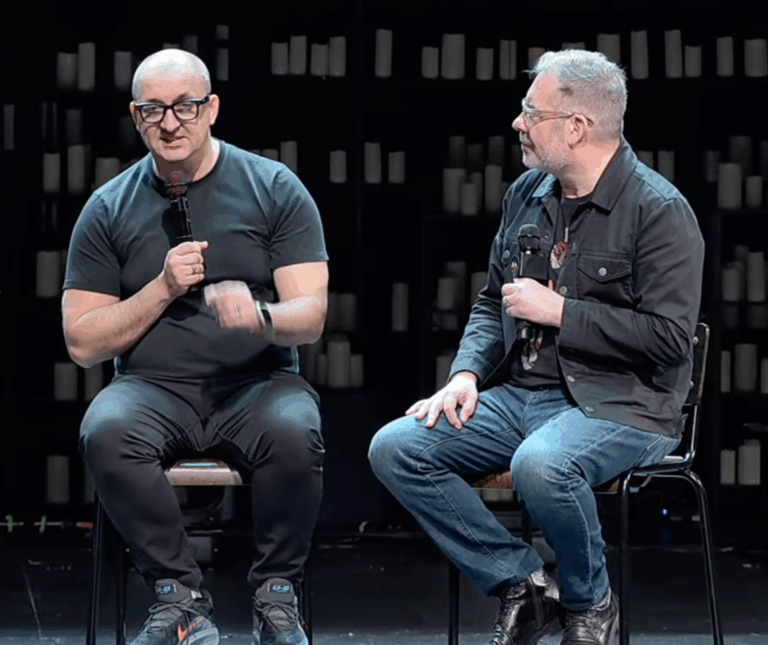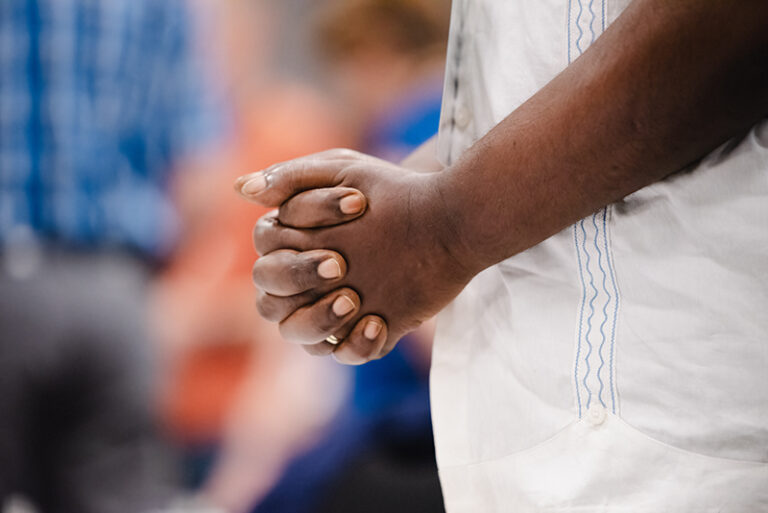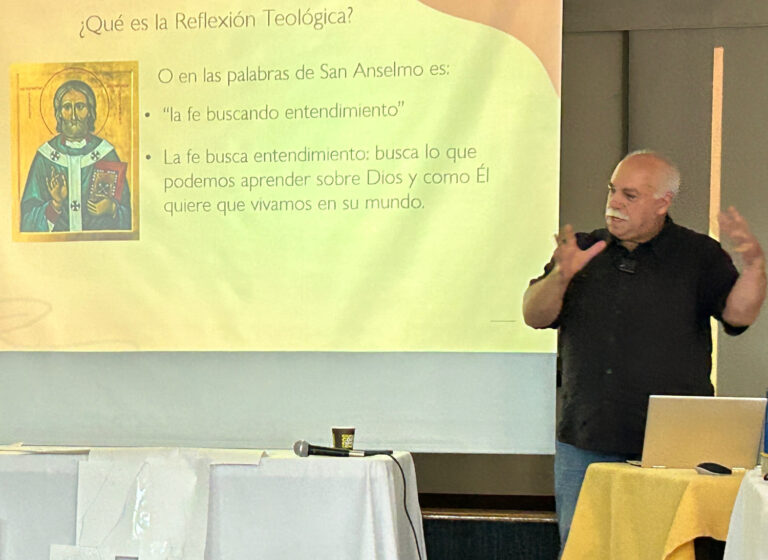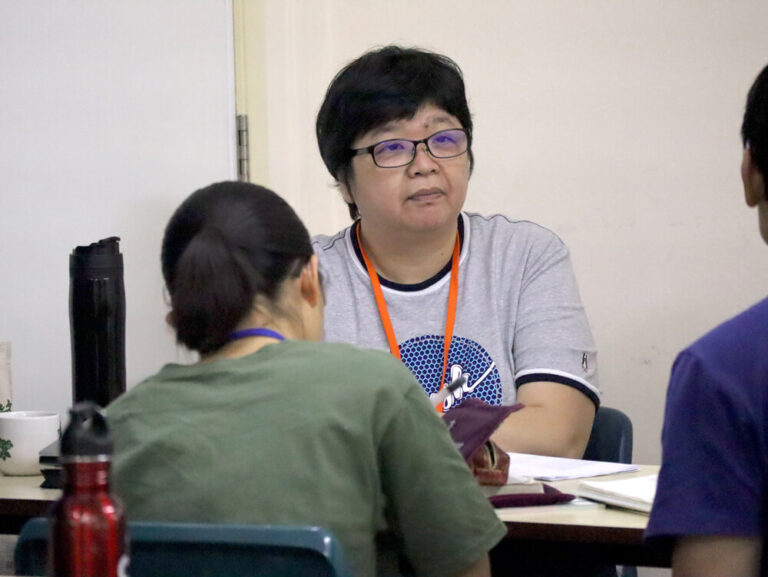
Bible translation roundtables are creating space for collaboration in Latin America, one relationship at a time
Bogotá, Colombia —
Lively Mariachi music filled the meeting room. Lights twinkled. Colorful pennants hung from the walls. Tables featured bright-hued country names and nametags. As people from 15 countries found their seats, they exchanged warm greetings. A buzz of anticipation filled the air.
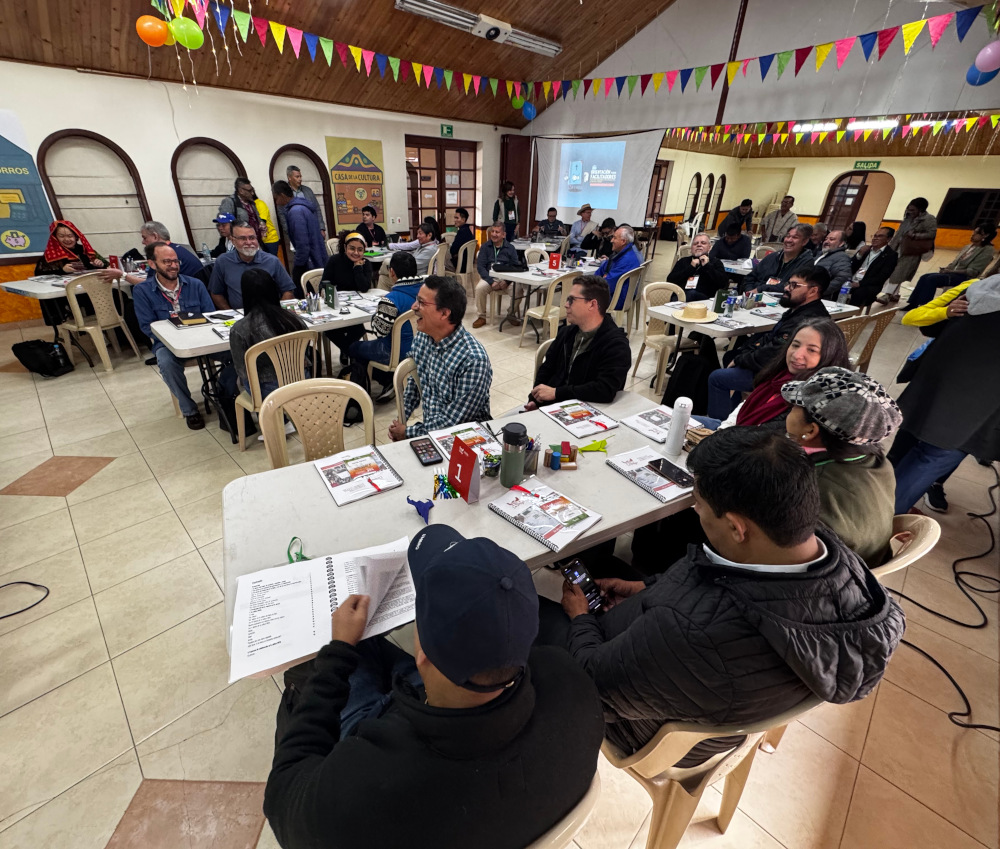
The occasion: a training workshop this past August for facilitators of mesas — national roundtables that bring together leaders of organisations, churches and networks active in Bible translation movements. The purposes: to grow friendships and share decision making, resources and expertise.
Some attendees already had been involved in the mesas in their countries. A few had attended a previous international gathering like this one. Others were brand-new. All were there to talk, learn and dream together—not only about the mesas in their own countries, but also collaboration across national borders. Stated values like friendship, unity and dialogue provided a foundation for deepening trust and collaboration.
‘I truly, truly believe in the purpose and the value, the vision, the mission of this concept of the tables,’ said Gisella Greenfield, Colombia mesa facilitator and Missions Director for Mission South America. ‘And the proof of that is the way it has sprung up. I mean, when something is not of God, it just dies out. When something is from God, then it blooms, it grows, it bears fruit.’
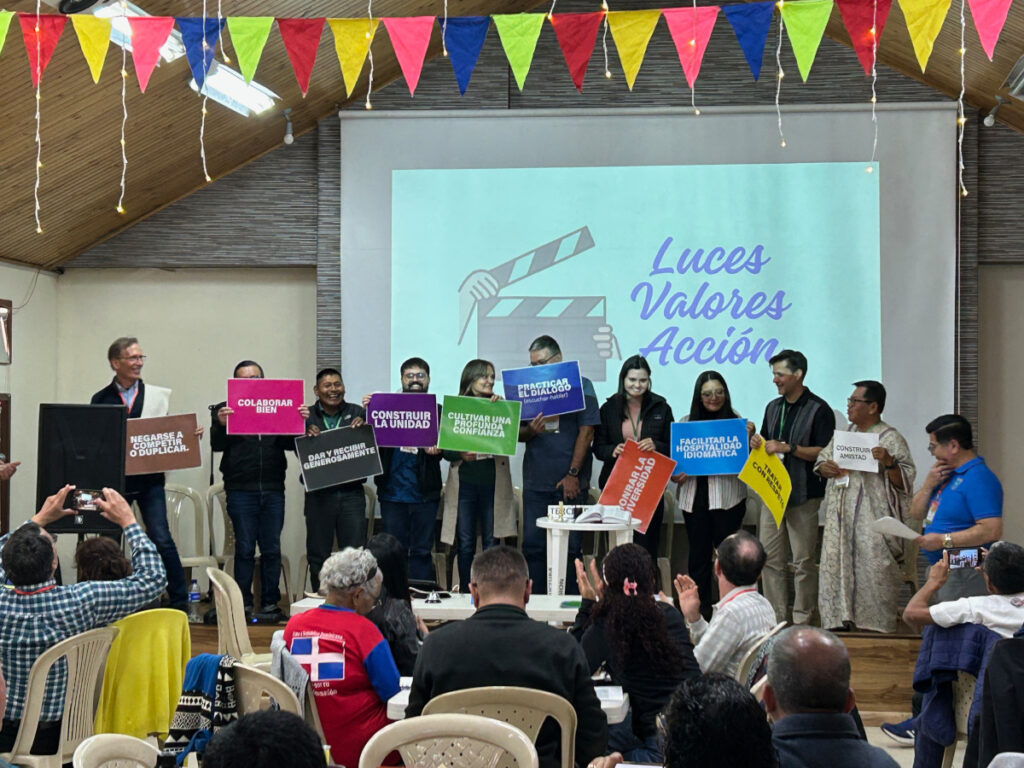
‘Values that don’t change’
David Pickens, former Latin America Director for SIL Global, now is Translation Projects Facilitator and a consultant in training. He talked about how SIL previously sponsored annual gatherings of its Latin American partners.
‘It would be a really dynamic time of integration and dialogue,’ he said. ‘We wanted more specific ways to work together. But it was based on SIL’s initiative and pocketbook.’
Mesas do something similar, but pull from a broader base of people. David was invited to the first Colombia mesa meeting with about a dozen others.
‘I was a believer once I stepped into the room,’ he said. ‘It’s based on values that don’t change. It’s based on identifying roles that really make this sustainable long-term.’
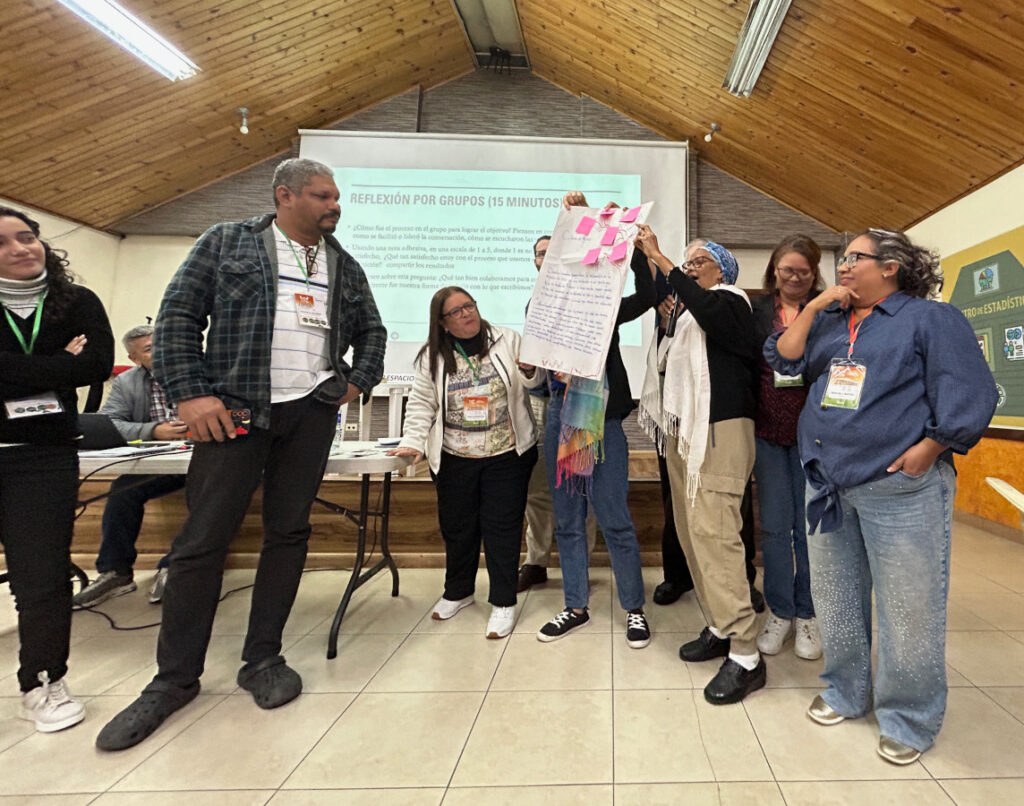
Those values — friendship, unity, dialogue, collaboration, diversity, respect, no duplication, no competition, generosity and trust—reflect an overall vision that isn’t new, but has been hard to achieve.
‘If we look back 10 years ago, it was sometimes difficult to imagine that an organisation would work in collaboration with another organisation,’ said Sandra Misal, Colombia Mesa facilitator and Director of Fundación Para el Desarrollo de Pueblos Marginados (FDPM). ‘They maintained cordial relationships, but working together was difficult to imagine. Everyone was busy doing the work in their organisation.’
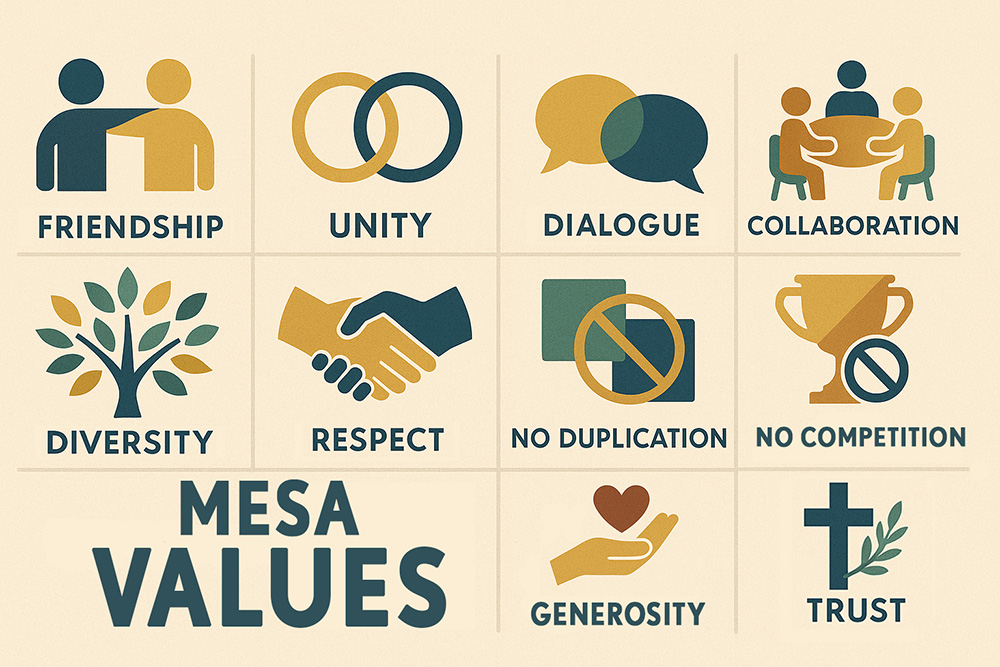
‘Radical collaboration’
David Cardenas, Americas Area Director for the Wycliffe Global Alliance, has been a driving force behind the mesas’ growth.
‘The working climate in some countries was marked by tensions, differences, competition and lack of generosity with data’, he said. Mesas, he added, have begun to change that climate.
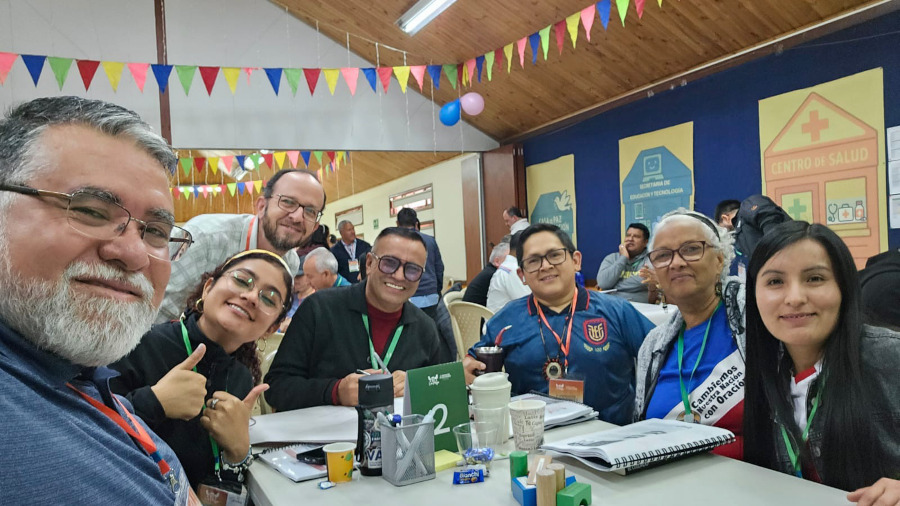
‘It’s better when we are at a table to be friends, to discuss, to share what we are doing, to identify necessities together and give God the glory’, David said. ‘When we consider generosity, when we consider serving together, mutual respect, dialogue, above all giving space to indigenous voices, listening to indigenous leaders, and to the church leadership about their needs and concerns.’
The bottom line, he said, is ‘radical collaboration’.
‘Today, each country has Bible translation ministries. There is not just one, but many. There are different Alliance organisations, indigenous churches, indigenous networks. The question is, if we don’t decide to collaborate, we are going to compete. We are going to fight for projects. We are going to have duplicate information. So, the best is to be in the mesas and discuss together our plans, our dreams.’
This approach differs from the historical model where international organisations set the strategy. Now, there is opportunity for those organisations to listen to national and local organisations and, perhaps most importantly, to the church.
‘It is a paradigm change, what we are seeing in Latin America’, David said, ‘that Bible translation can be done from local voices, in collaboration, in friendship with everyone. Also it is a paradigm change in the form of leadership. Because many of us are accustomed to lead without collaboration. But to be in the mesa, I feel challenged to lead in collaboration with others. That is the culture of the kingdom of God. “
‘More natural, more neutral’
Mesas start with everyone simply sitting down at a table together. Often, the table configuration really is round—implying no one person or organisation is superior to another. To establish trust, top priorities are the values of friendship and dialogue.
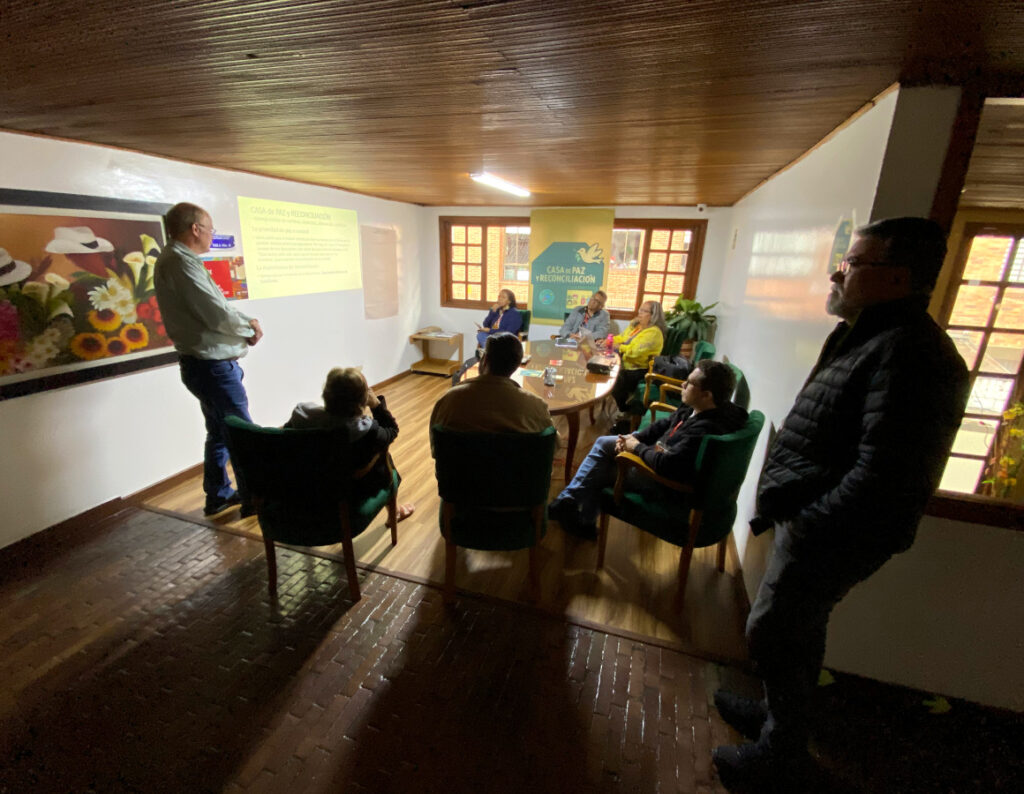
‘We’re finding, discovering and learning tools and resources and ways in which it can be done creatively, in a way that won’t be ‘offensive’ when we approach people in the agencies to get together and work together’, said Timoteo Bachmann, Brazil mesa facilitator and a translation consultant for Missão Pioneiros da Bíblia (Pioneer Bible Translators). ‘It will be more natural, more neutral, and not as if one agency is trying to interfere in the other, but as brothers and sisters in Christ, to work together, do things together more intentionally.’
‘The mesa invites us to collaborate’, Sandra said. ‘The mesa invites us to think that the work is not done alone, that the work is done in community, that the work is done valuing what the other does, but also accepting humbly that I don’t have it all… We take off the jersey of our organization and say, ‘Well, what do I have that I can contribute to you? And what do you have that you can contribute to me that I may not have?’
‘And something beautiful comes out of that.’
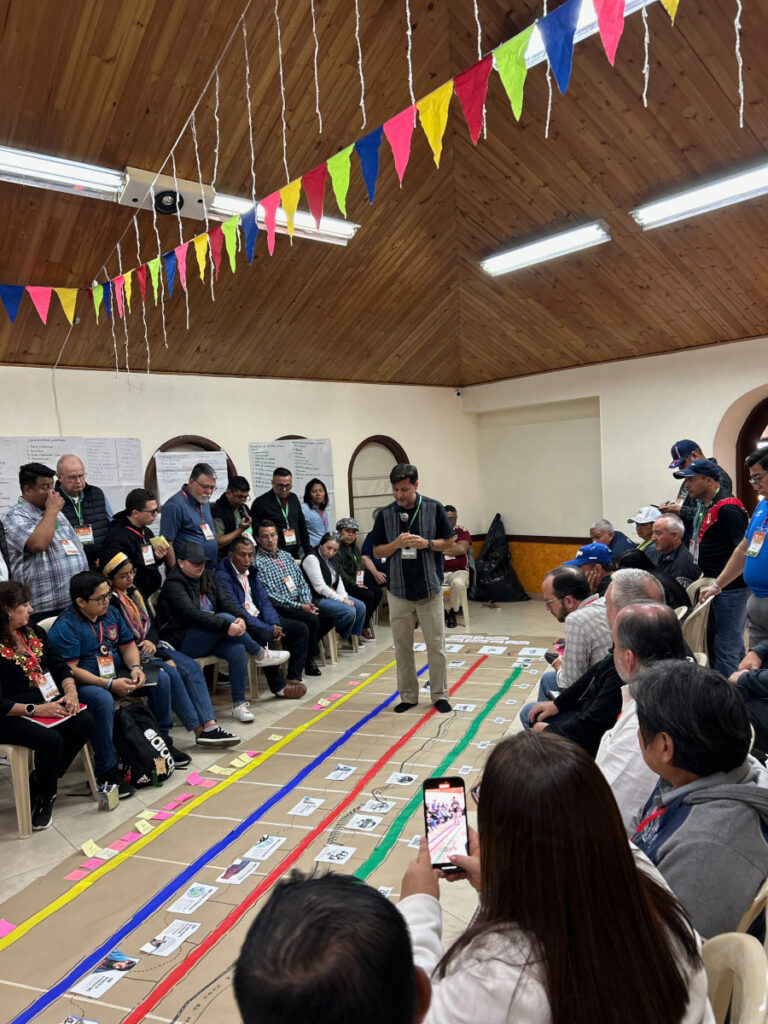
Everyone has a voice
In Colombia, Gisella says, new members coming onto the Colombia mesa are surprised to discover a “flat” organisational structure, ‘where all voices are heard’.
‘That’s unheard of outside,” she said. “Not even in churches.’
‘If you don’t listen to all the voices,’ she said, ‘you will be missing so much. In the past, I’ve been the kind of person who very quickly has an understanding of the question, and will give the answer. I used to be like that. And because of the interaction with indigenous peoples, I’ve come to see that they have so much wisdom and definiteness in conceiving certain aspects that I would oversee. So now, I just stay quiet. Because they need time. We are quick. But they take time to ponder and consider. They’re more Asian. And then when they say something, you’re like, Wow, that’s great.’
This value speaks to the global Bible translation movement as a whole, particularly on the topic of power in mission: ensuring that everyone has a voice, and acknowledging that everyone has something to contribute.
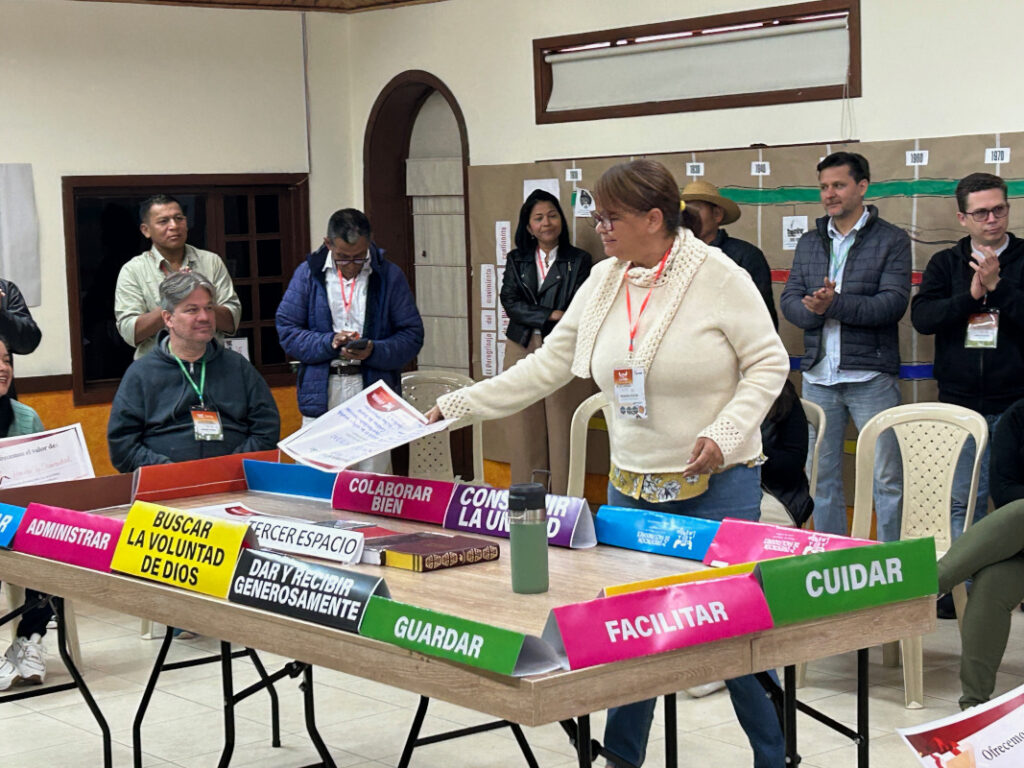
Abdiel Lopez, Faith Comes By Hearing’s Regional Director for Northern Latin America, remembers a session at the first orientation when participants were asked, ‘What gift can you bring to the table as an organisation?’ Together they talked about relationships, devices, programmes and training, as gifts to give and to receive.
‘There is no boss, no one who is in charge of everything’, Abdiel said. “It is a synergy that occurs among all of us in order to do it. Today, when we were talking about ‘catalysing’ with the Guatemala table, we concluded: Well, there is no catalyst. It is when the three of us [facilitators] get together that the catalytic moment happens. It is when we are together that things are possible. So, that is what happens. It is not a boss who appears, but when we get together and we talk, ideas like this come up.’
He pointed to large pieces of paper taped to walls in the Colombia meeting room, where attendees had all written ideas to share with the group.
‘I had not seen it. But there is my writing. There are some of my ideas. So my voice was heard, it was listened to, it was taken into account. … The fact that my writing is on a poster, that already makes you feel part of [the dialog]. I was there, I participated, and I’m part of something big. Not an organisation, something big. We participate in God’s mission.’
•••
Story: Wycliffe Global Alliance. Gwen Davies in Bogotá, Colombia; Jim Killam in the U.S.

